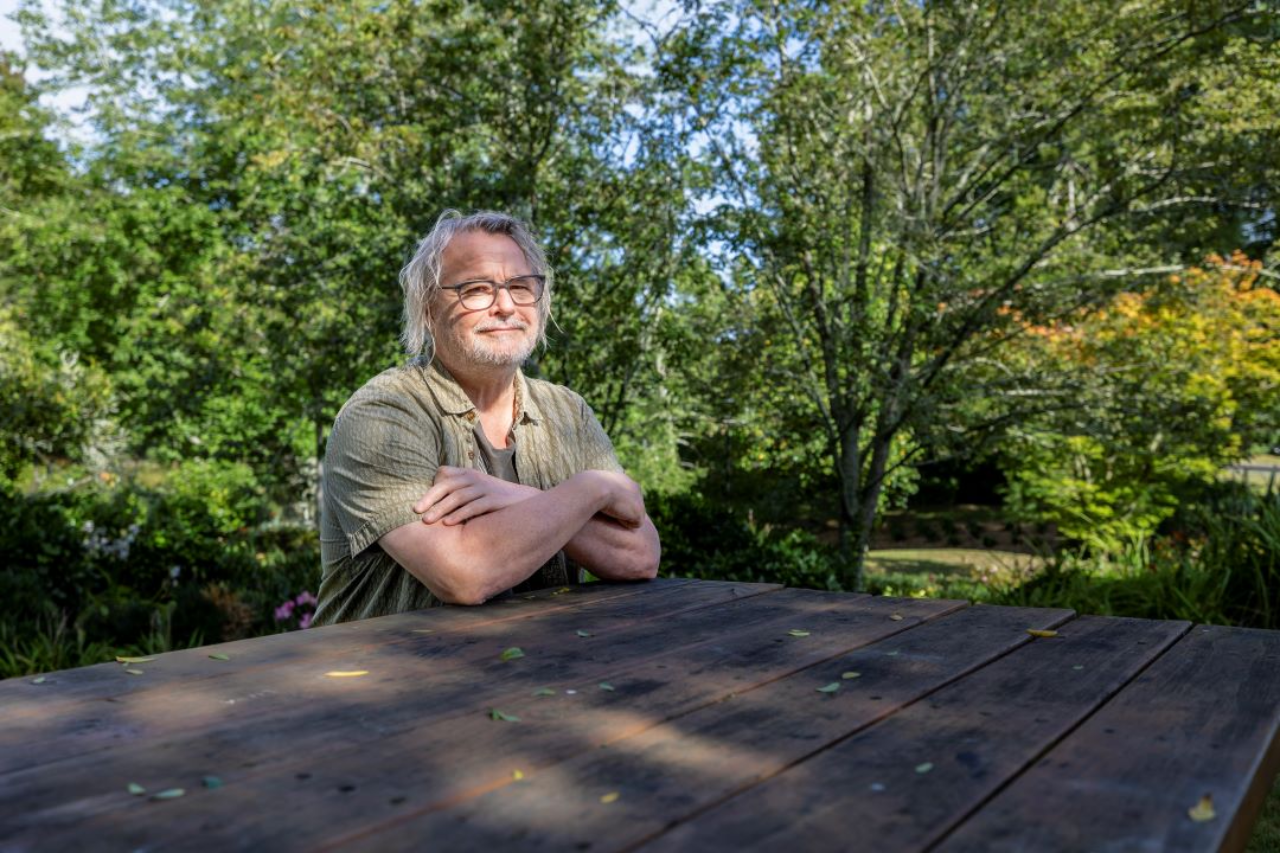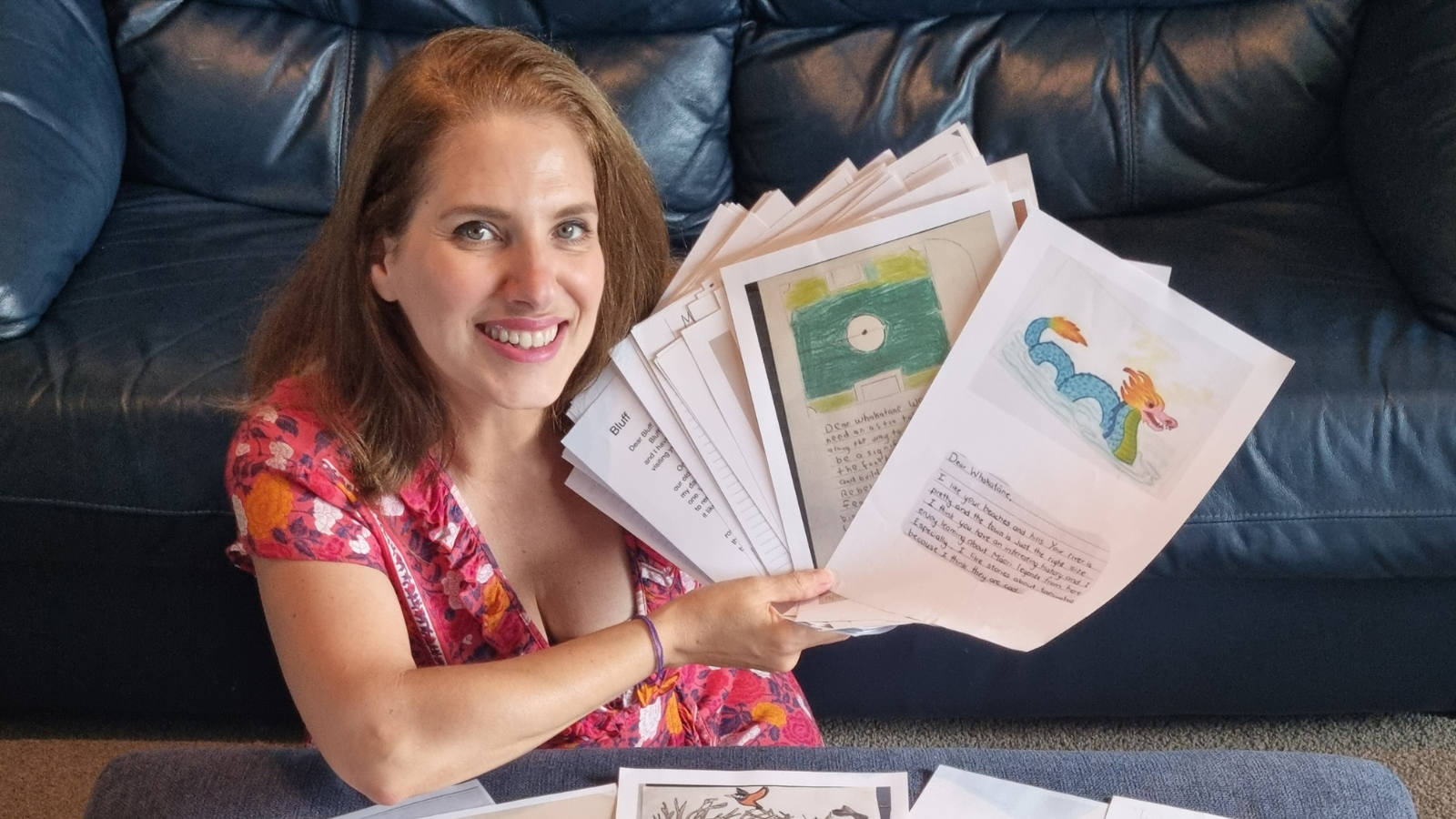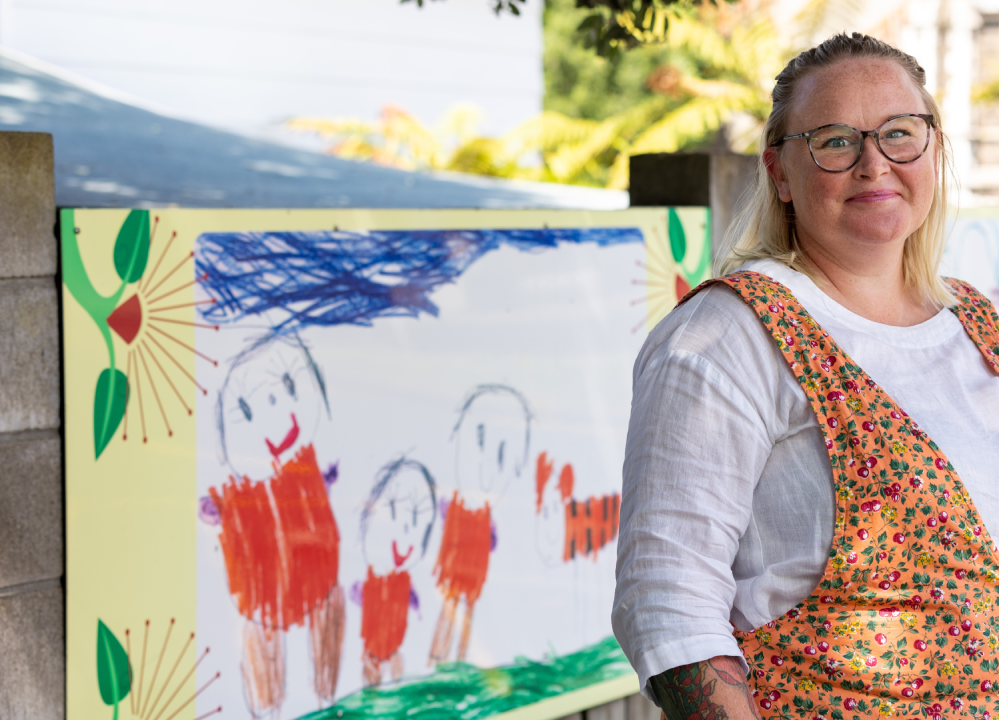TEDxUniversity of Waikato 2025 saw expert speakers share new perspectives on the world’s most wicked problems and emerging opportunities.
The event, held last week in both Hamilton and Tauranga, challenged 14 University experts to communicate the real-world impacts of their research in 18 minutes or less, while informing and entertaining their audience.
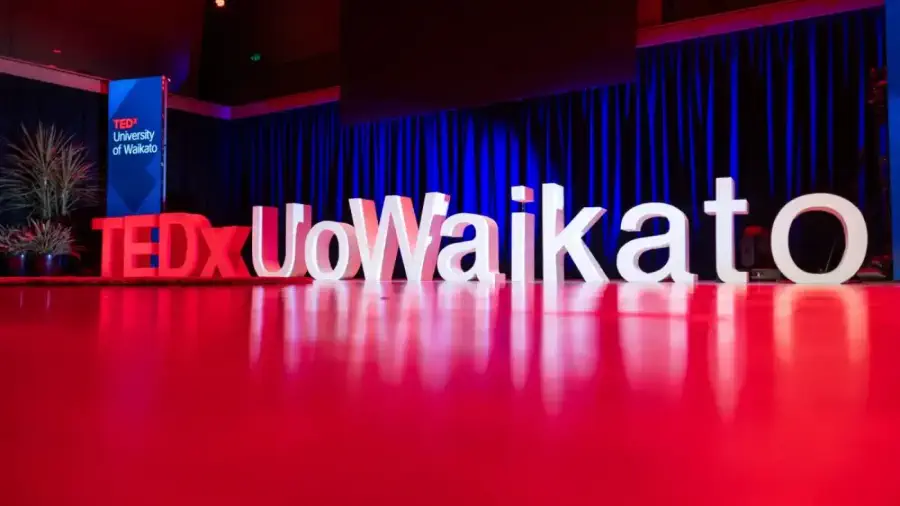
TEDxUniversityofWaikato.
From the loss of native species to the perils of ageism and confusing social media slang, the untapped potential within volcanoes, to meaningful crime statistics and protecting the privacy of our DNA, TEDxUniversity of Waikato showcased the breadth of Waikato’s research.
Open to the public for the first time, Deputy Vice-Chancellor Research Professor Gary Wilson said TEDxUniversity of Waikato was about demonstrating the impact the University is having through its research on topical societal issues and challenges.
“Research is a core part of the University’s purpose. Not only does it advance knowledge frontiers, but it is also key to addressing some of the challenges we as a region, a nation and a globe face,” he said.
“The issues our speakers will tackle shape all of our everyday lives. Whether within our own families, in our country or on our planet, how we deal with these challenges will define our future,” he said.
The event (and videos of each talk shared online afterwards) also opens research insights up to new audiences outside the University.
“As a university, we pride ourselves on our research. The more people who know about it, and importantly, the more people who can understand and be engaged with it, the better,” Professor Wilson said.
This article will be updated with each speaker’s video once it is made available on the TED platform.
Hamilton
Dr Benjamin Djain challenged the audience to consider AI chatbots as theatrical performances where the user, the chatbot and the programmer each play their part.
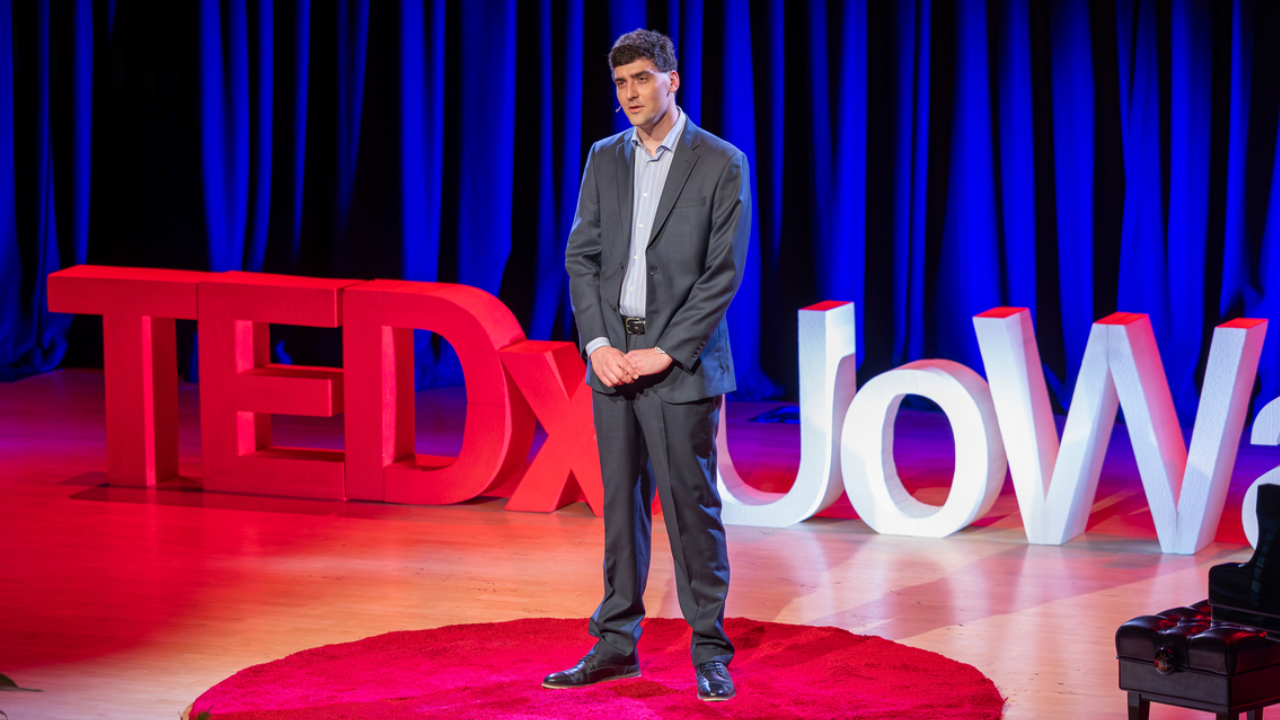
Dr Benjamin Djain.
Dr Samantha Heath warned that ageism is killing us, and that as New Zealand anticipates a great demographic shift, we all have a role to play in changing the narrative.
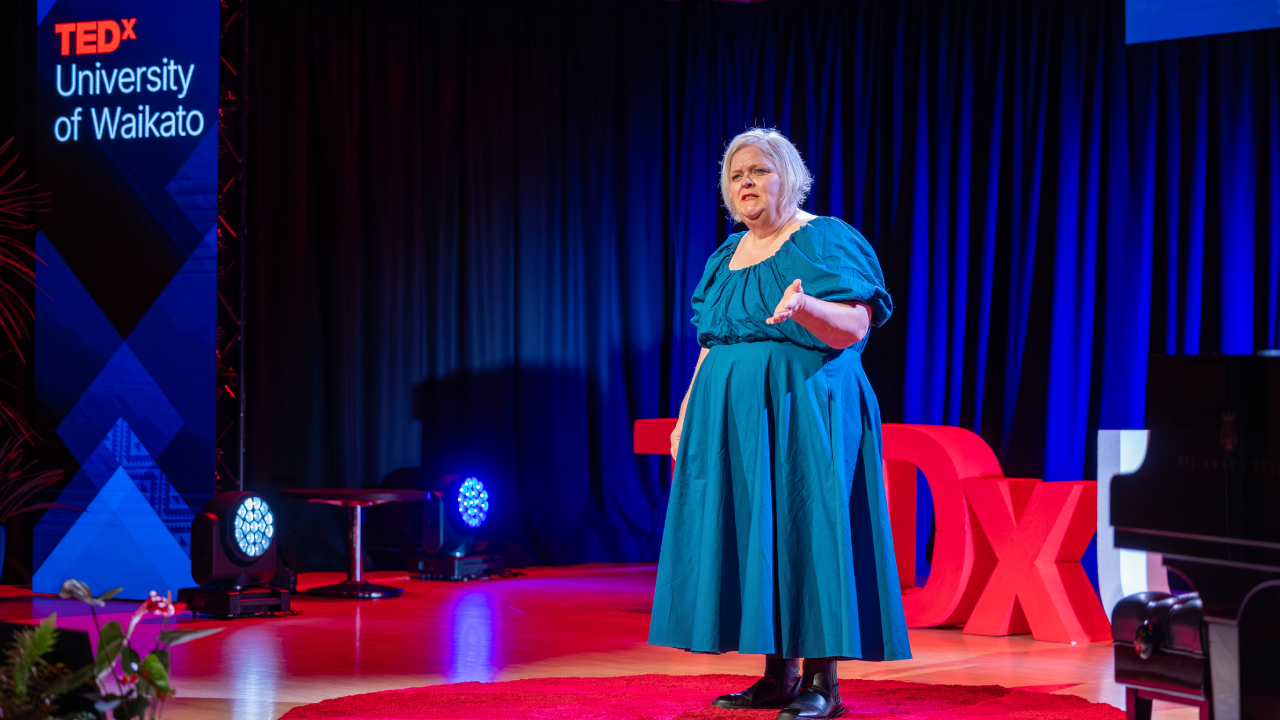
Dr Samantha Heath.
Professor James Lim shared the innovation behind the factory in a can, a solution he says has more potential to be used in New Zealand than is being taken up.
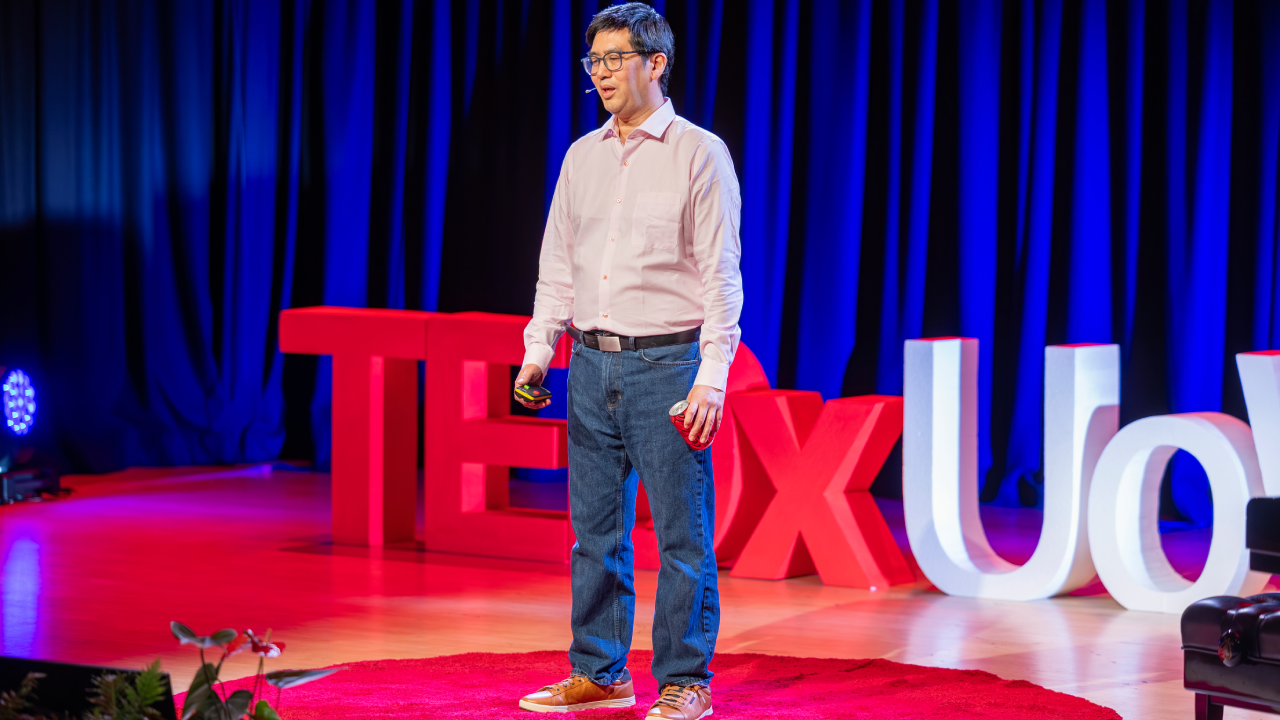
Professor James Lim.
Dr Andreea Calude brought a new perspective to social media slang, calming concerns amid the rapid pace of language change.
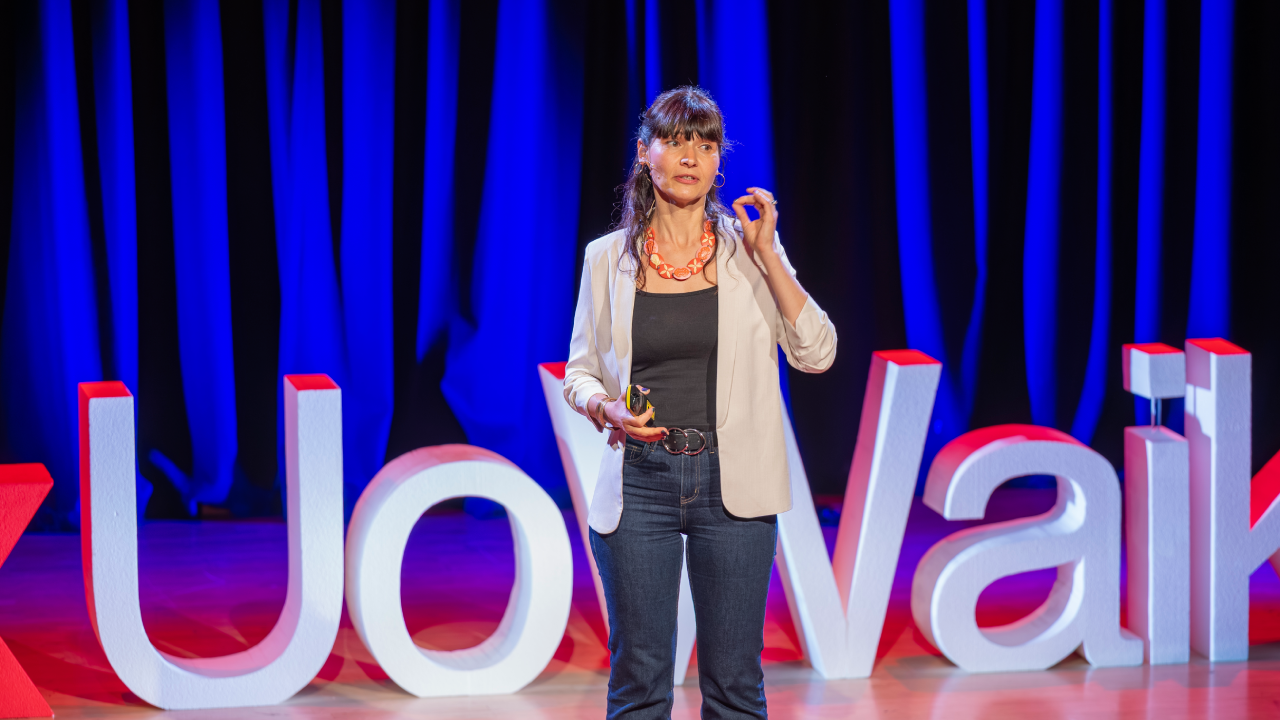
Dr Andreea Calude.
Dr Kirstine Moffat gave her audience an experience of musical time travel with an insight into the personal passions of English novelist Jane Austen.
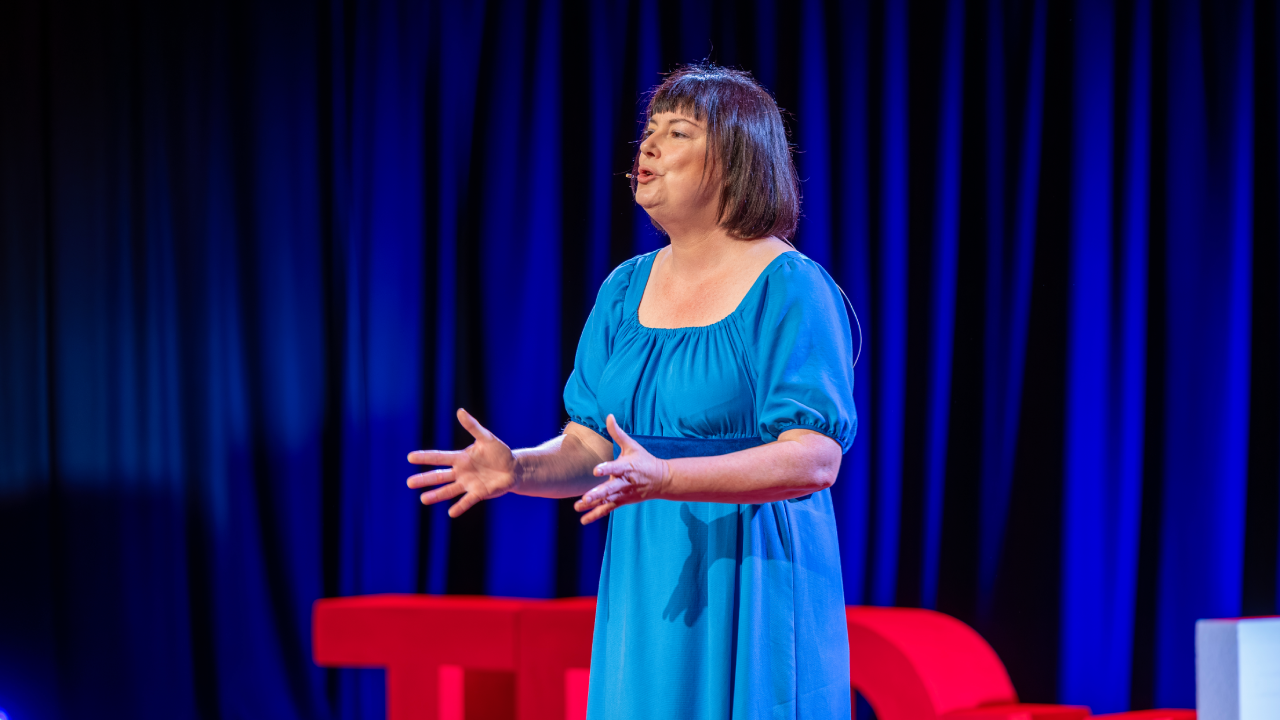
Dr Kirstine Moffat.
Dr Sione Vaka shared his expertise in the Pacific customs that can heal mental distress, with huge potential in a health system under strain.
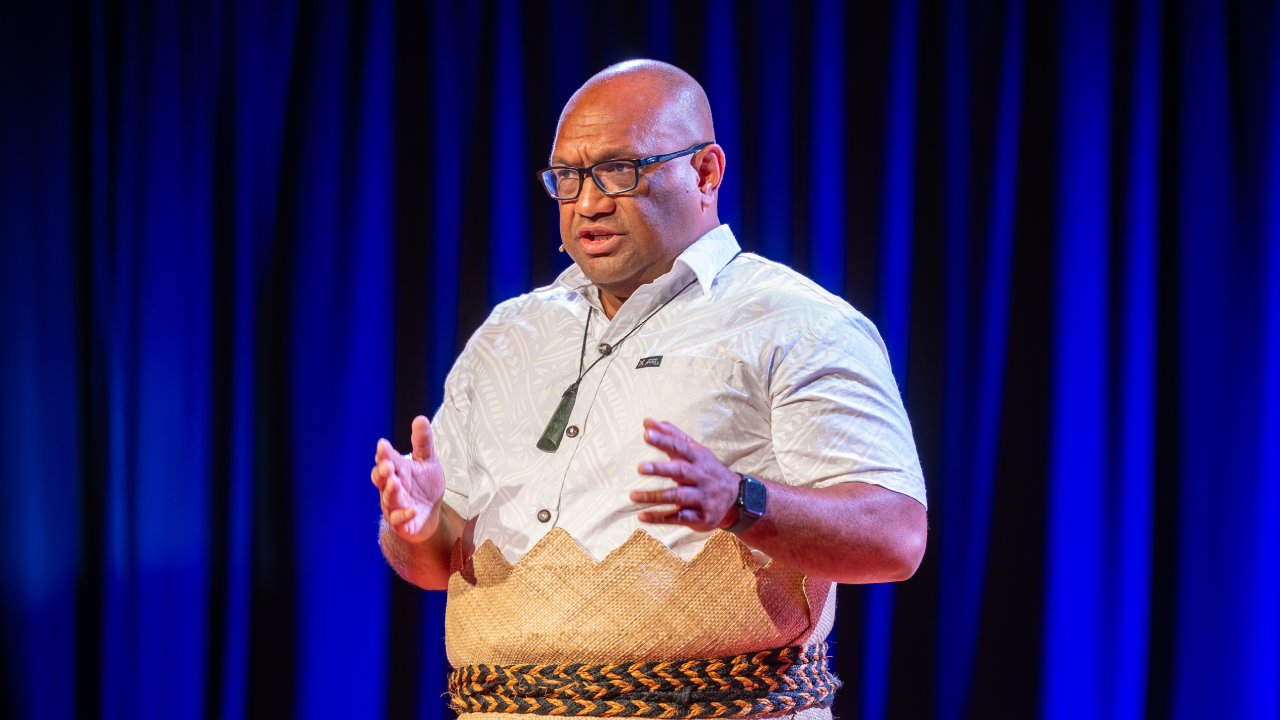
Dr Sione Vaka.
Dr Ang McGaughran asked what we can learn from nature’s bad guys, invasive species, to help the good guys, native species, survive in the face of climate change.
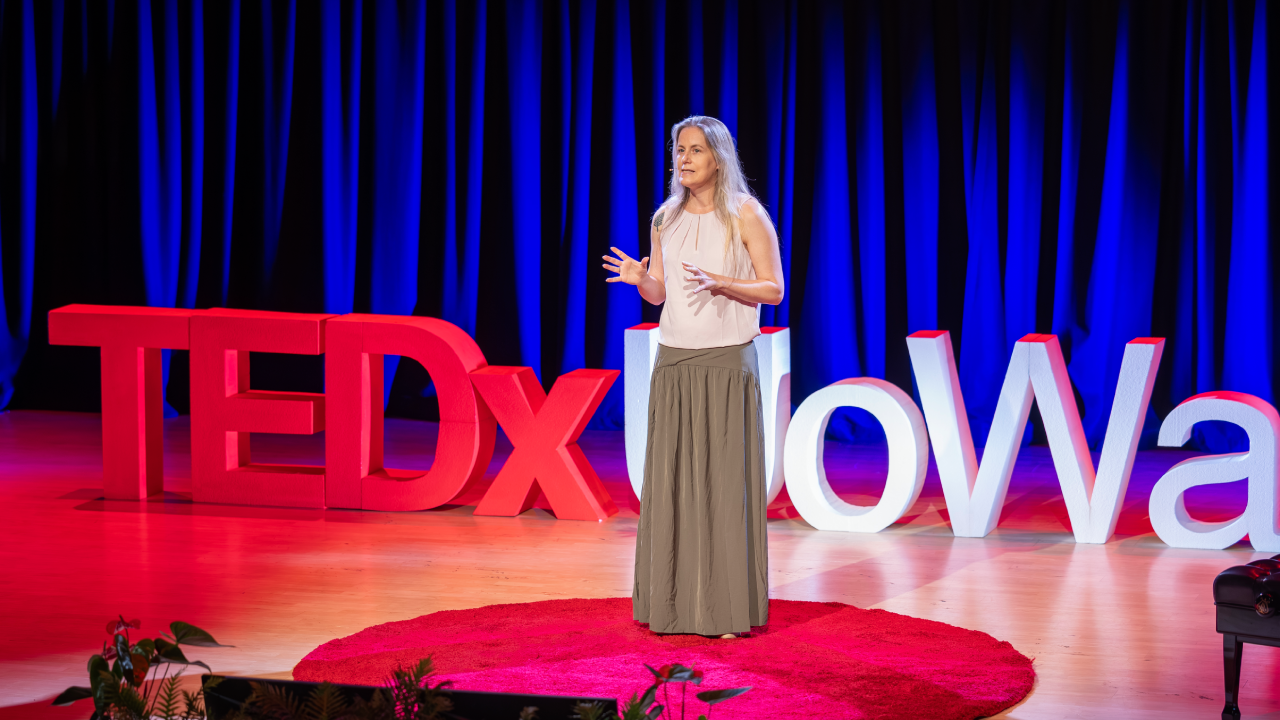
Dr Ang McGaughran.
Tauranga
Professor Chris Battershill illuminated the potential for us to discover life-saving compounds and medicines from the sea – a research area that gives hope to many.
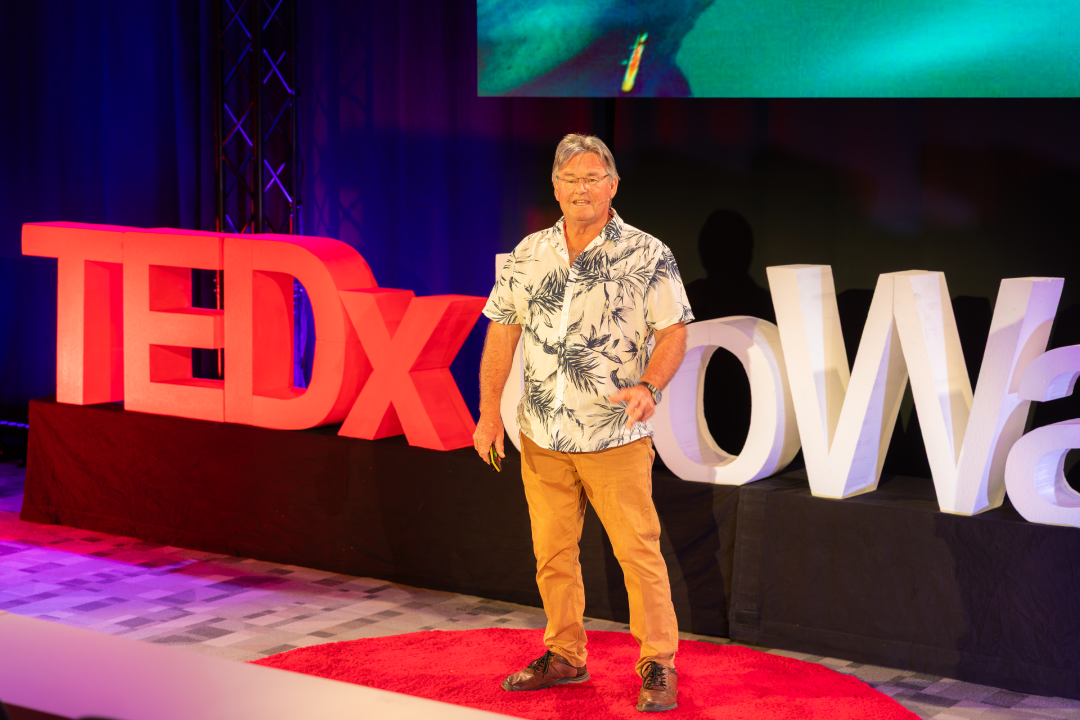
Professor Chris Battershill.
Dr Lisa Tompson shared the dangerous potential of numbers, with denominators holding the key to our perception of pressing societal issues.
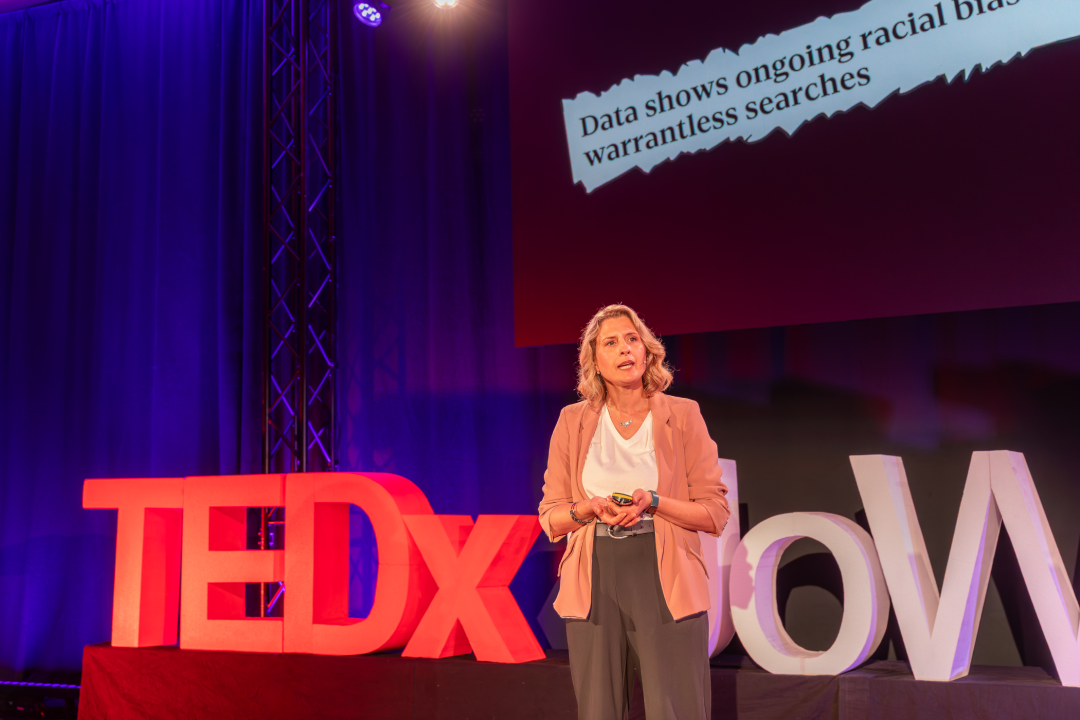
Dr Lisa Tompson.
Professor Nick Agar expanded on the crisis in the humanities – a crisis he says should be welcomed as it’s crucial to our advancement.
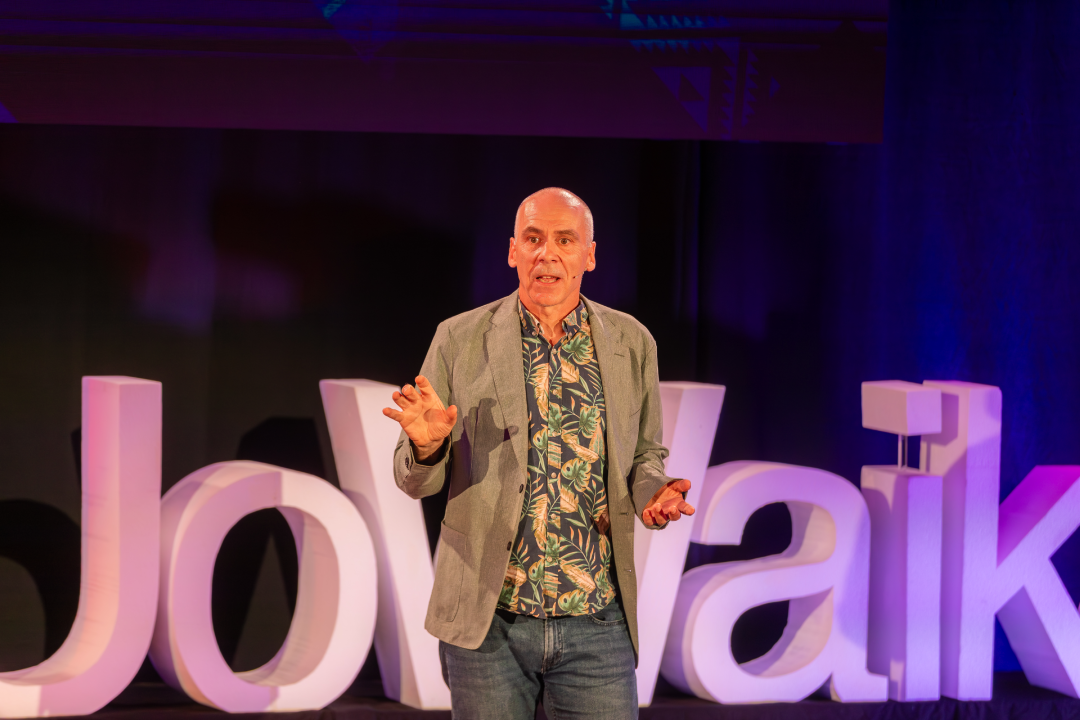
Professor Nick Agar.
Dr Unaisi Narawa asked an urgent question amid the climate change-fuelled identity crisis occurring in the Pacific: who are you?
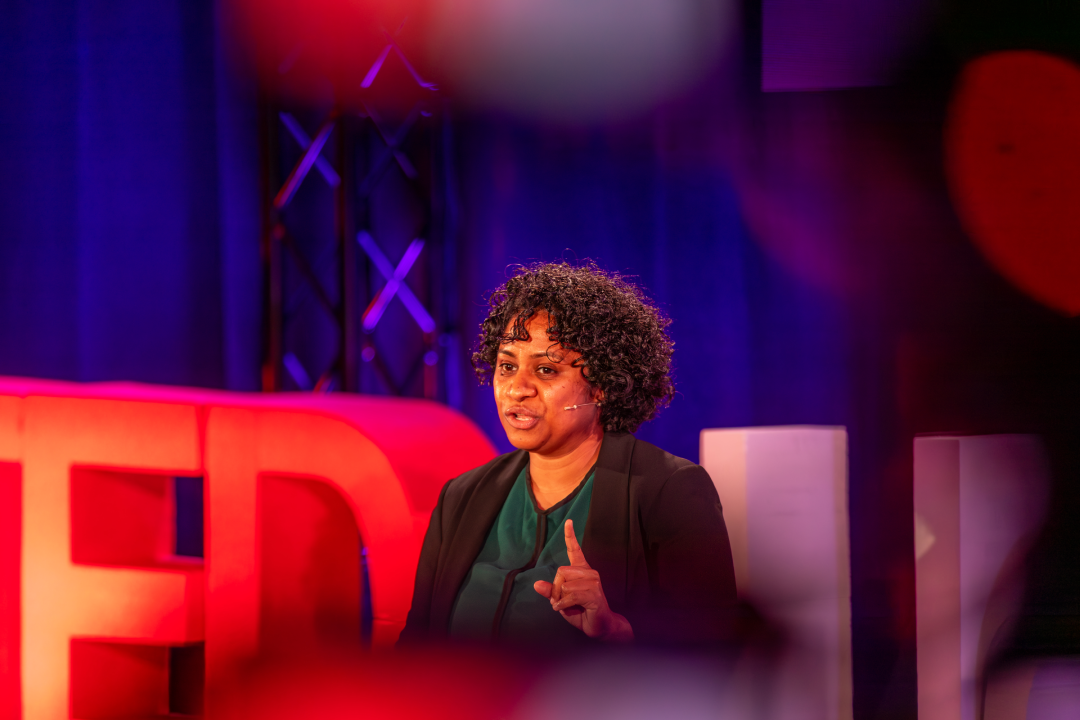
Dr Unaisi Narawa.
Dr Judy Bowen’s insights told us that a better AI-assisted technological future is possible – one where our smart companions blend seamlessly into our lives – and getting there is easy.
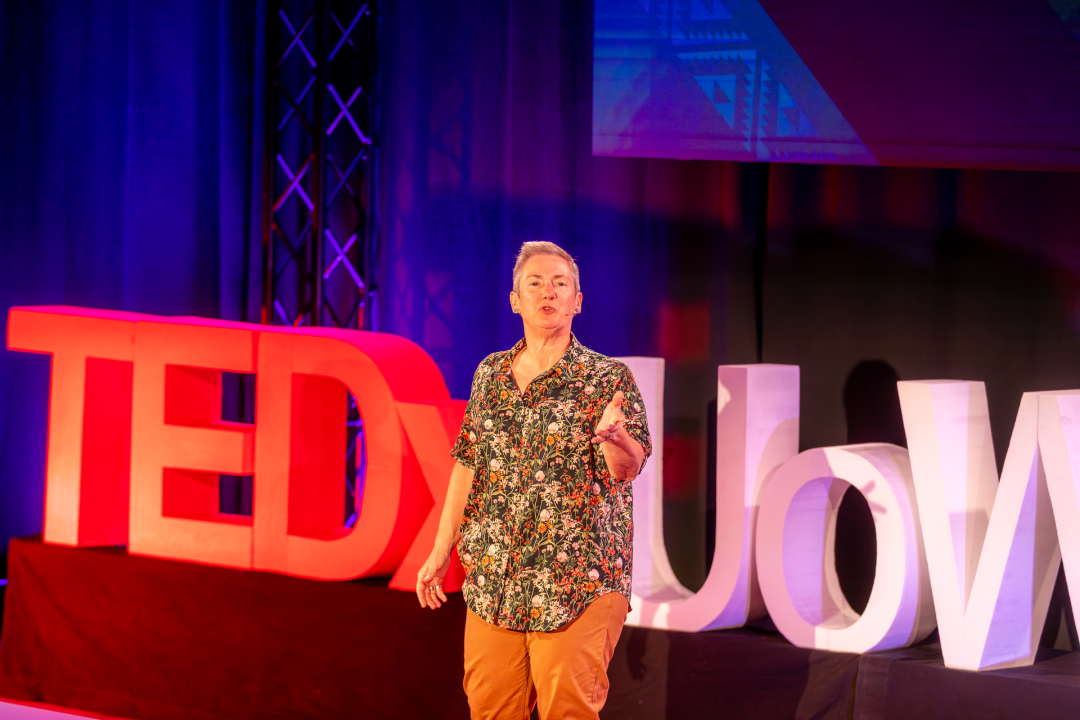
Dr Judy Bowen.
Karen Turanga’s story explored themes of family ties and lost connections, and what we sacrifice to find the missing information we search for.
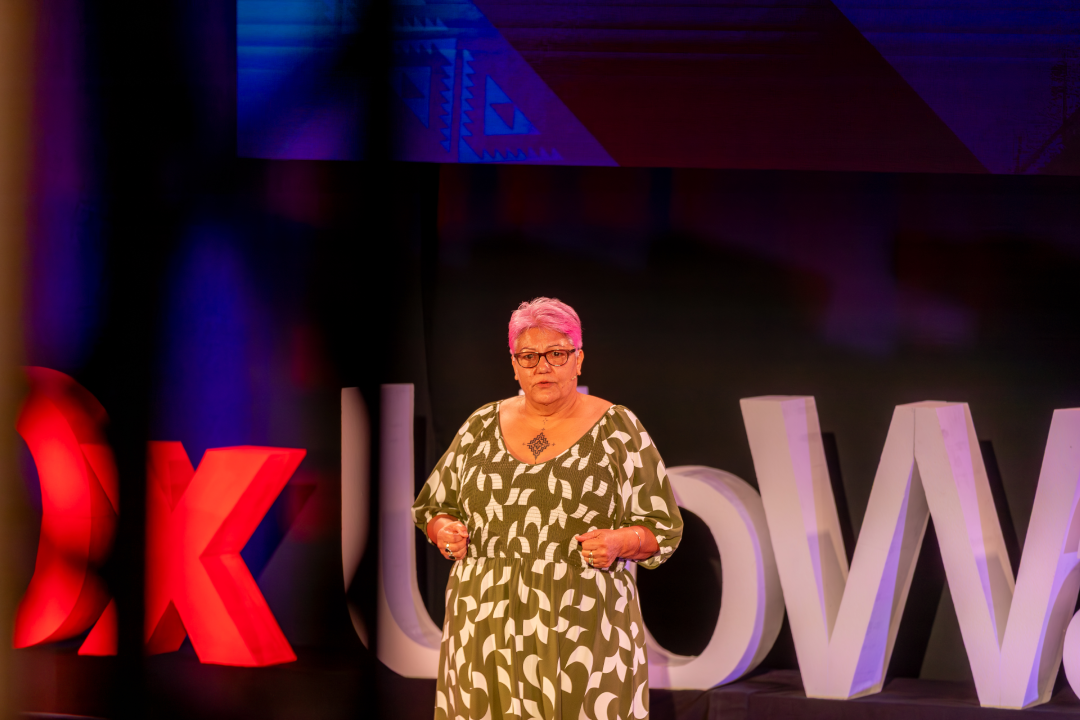
Karen Turanga.
Professor Emma Nicholson shared the potential for volcanoes to play a part in solving the metal supply crisis that threatens the world’s shift to clean energy technologies.
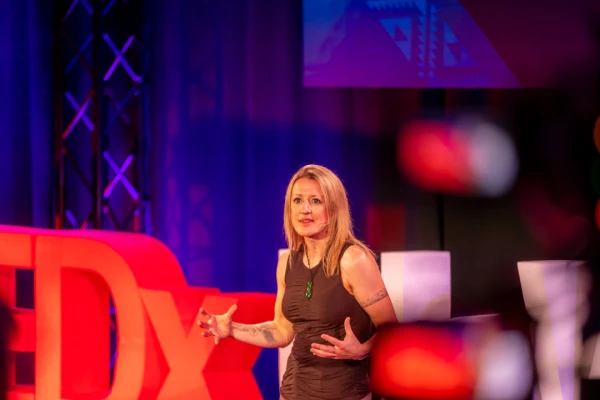
Professor Emma Nicholson.
